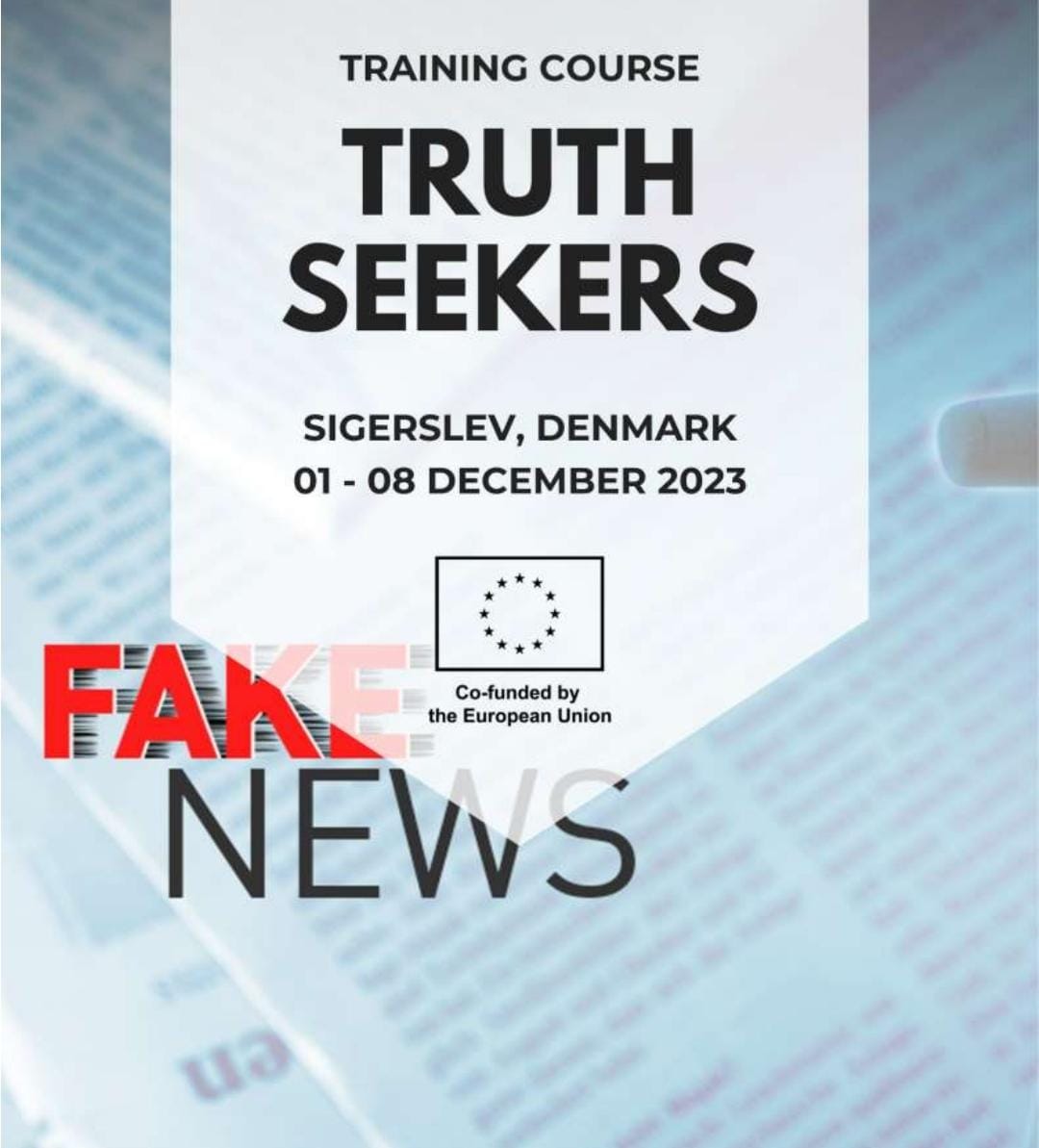Duration: 01 – 08 December 2023 (travel days included)
Location: Sigerslev, Denmark
Theme: fake news, critical thinking, media literacy, non- formal education
Hosting Organization: Youth Council Next Generation
Project Description
The main objective of the project “Truth Seekers” is to train youth
workers, youth leaders and people active in the youth field in critical thinking
and to improve their media literacy, and they in turn to apply the acquired
knowledge and skills during their work with young people, with the help of non-
formal education tools and methodology.
Project Goals:
- Introducing the participants to the terms media literacy and critical
thinking – historical retrospective, basic concepts, theory and
practice, main principles etc. - The role of the media in promoting hatred, prejudice and
stereotyping against nationalities, minority ethnicities and other
vulnerable groups will be discussed and understood. - Improvement of media literacy and critical thinking among the
participants through a range of non-formal education methods.
Their skills in recognizing processed photos and videos with
specialized software will be improved. The role of artificial
intelligence in the creation of fake video will be explored. - Participants in the mobility will share examples of fake news and
misinformation from their countries and discuss good practices at
national level to tackle the problem. - Particular attention will be paid to the European Union’s strategy to
combat disinformation. Good examples of sites at European and
global level will be examined. - Youth workers will develop their own strategies to combat
- disinformation and fake news, in the form of local campaigns aimed
- at young people and especially those with fewer opportunities.
- To create new tools and methods of non-formal education related to
promoting media literacy and critical thinking. The tools and
methods of non-formal education created during the project will be
used by the youth workers in their work with young people. Special
attention will be paid to non-formal methods of working with
disadvantaged youth coming from marginalized and ostracized
groups, which are primary target of propaganda. - The participants they will have the opportunity to write their own
Erasmus+ project during the training course with the help of the
experienced trainers. This will improve their knowledge and
understanding of the programme in depth. - To establishing a new network of NGOs at European level to serve as
a basis for future joint projects under the Erasmus+ programme but
not only.
The ideal volunteer should have the following characteristics:
- At least 18 years old;
- Active in the field of youth work at local, national and international level – youth workers, youth leaders, youth mediators, trainers, mentors and in general people directly involved at a professional level in youth work;
- Having a good reputation and positive image among the local community;
- To be aware of their training need for such an activity, highly motivated both to participate in the mobility and to disseminate the results and ensure visibility in the follow-up activities after its completion;
- Working actively with large numbers of young people and young people with fewer opportunities – selecting such participants will ensure the most tangible and strong impact from the project;
- Having a communicative level of English. Each partner will be tasked with securing the participation of one disadvantaged youth worker who is experiencing social, economic or geographical difficulties. The main aim of involving this group of participants is to reach marginalized young people facing similar difficulties. Youth workers with fewer opportunities are the ones working directly with young people with fewer opportunities being in the same neighborhood or sharing same marginalized environment.
Further Information:
- Non-formal methods of education;
- Learning by doing method;
- Ice-breakers and team-building games to get to know each other;
- Workshops will leave room for guided but controversial discussions;
- Simulation, practical work, brainstorming, interactive presentations
- etc.
